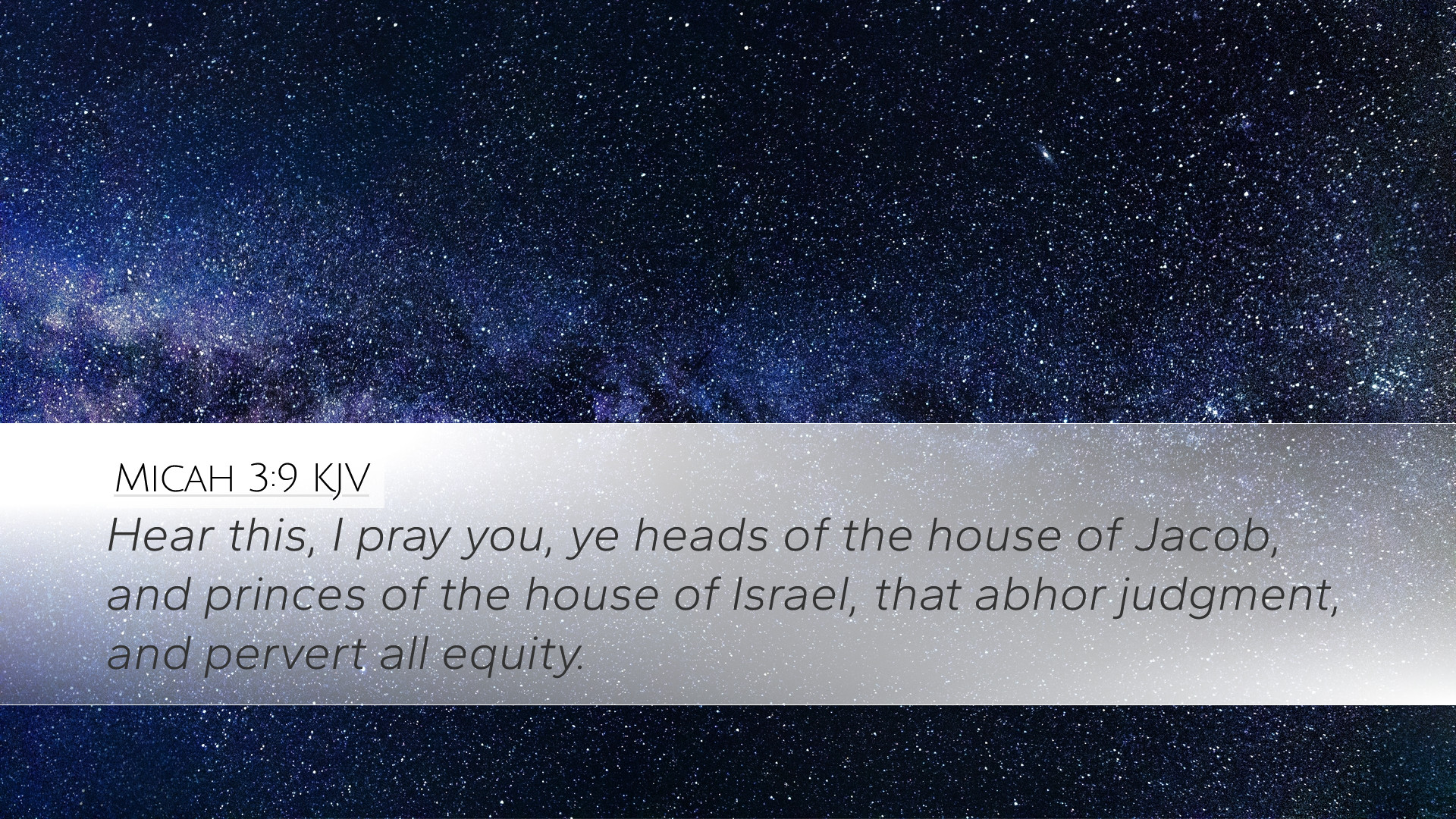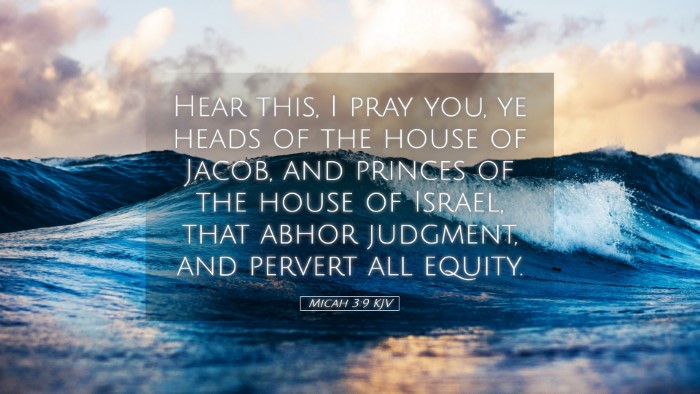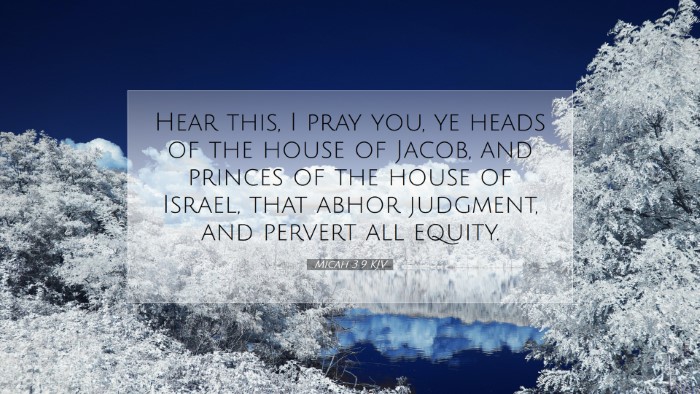Old Testament
Genesis Exodus Leviticus Numbers Deuteronomy Joshua Judges Ruth 1 Samuel 2 Samuel 1 Kings 2 Kings 1 Chronicles 2 Chronicles Ezra Nehemiah Esther Job Psalms Proverbs Ecclesiastes Song of Solomon Isaiah Jeremiah Lamentations Ezekiel Daniel Hosea Joel Amos Obadiah Jonah Micah Nahum Habakkuk Zephaniah Haggai Zechariah MalachiMicah 3:9
Micah 3:9 KJV
Hear this, I pray you, ye heads of the house of Jacob, and princes of the house of Israel, that abhor judgment, and pervert all equity.
Micah 3:9 Bible Commentary
Commentary on Micah 3:9
Verse Reference: Micah 3:9 – “Hear this, you heads of the house of Jacob, and rulers of the house of Israel, who abhor judgment, and pervert all equity.”
Introduction and Context
The book of Micah, one of the minor prophets, primarily addresses the moral and ethical decay in Israel and Judah, particularly criticizing the leaders for their corruption and injustice. Micah's prophetic message calls for social reform and the establishment of true righteousness.
Analysis of the Text
In this verse, Micah addresses the leaders and rulers directly, underscoring their responsibility in upholding justice within their communities. This pronouncement is directed towards two key groups: the heads of the house of Jacob and the rulers of Israel, emphasizing the significance of leadership in shaping societal values.
Heads of the House of Jacob
Matthew Henry notes that "the heads of the house of Jacob" refers to those of high status and leadership among God’s people. This includes priests, judges, and kings who should exemplify righteousness. Instead, they are accused of corrupt practices.
Rulers of Israel
Albert Barnes observes that the rulers are responsible for interpreting and executing the law. By perverting justice, they betray their sacred duties. The phrase "who abhor judgment" indicates a deep disdain for the very principles that should guide their actions.
Perverting Equity
Adam Clarke elaborates on the term "pervert," which means to twist or distort the intentions of the law. Instead of promoting justice, these leaders misapply their authority for personal gain and oppression of the vulnerable.
Theological Implications
This verse calls into question the divine expectation of leaders to act as stewards of justice, integrity, and righteousness. Failure to do so incurs severe spiritual and communal consequences. There is a strong reminder of God's concern for societal justice and the elevation of moral standards among leadership.
Call to Accountability
Micah's message serves as a prophetic challenge to all who hold positions of leadership today. Are we fostering environments where justice reigns? Henry emphasizes that God requires leaders to uphold the law and serve the people without bias or corruption.
Justice as a Divine Attribute
Moreover, Clarke highlights that justice is a reflection of God’s character. Leaders who neglect their duty to uphold justice not only fail their communities but also misrepresent the character of God whom they claim to serve.
Exhortation for Today’s Leaders
For pastors, students, and theologians, this verse serves as a potent reminder of the weighty responsibilities that come with leadership. It inspires a self-reflective examination of one's motives and actions in positions of influence.
Practicing Justice in Modern Contexts
The call to promote equity and abhor judgment applies in both church governance and societal leadership. Christian leaders today must navigate complex moral landscapes, ensuring the values of Christ's kingdom are embodied in their decision-making.
Societal Reforms
Just as Micah urged reform, contemporary leaders should advocate for justice and righteousness in their spheres of influence. Whether addressing social injustices, advocating for the marginalized, or standing against systemic evil, the divine mandate remains clear.
Conclusion
Micah 3:9 serves as a powerful reminder that leadership comes with the obligation to be servants of justice, equity, and truth. The corrupt practices of ancient Israel echo in today’s world, and the prophetic call to righteousness must continue to resonate in the hearts of all leaders. As we reflect on this verse, may we commit ourselves to upholding God's principles in our lives and communities.


